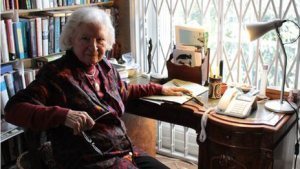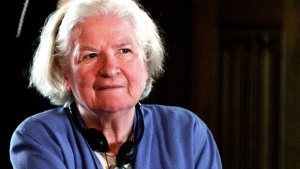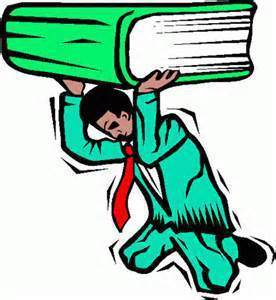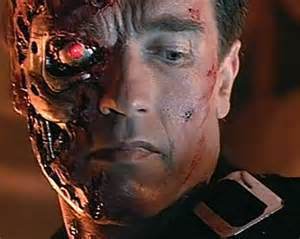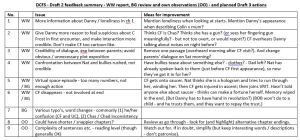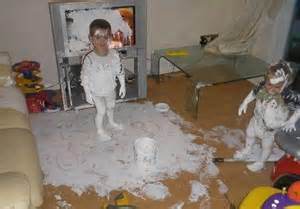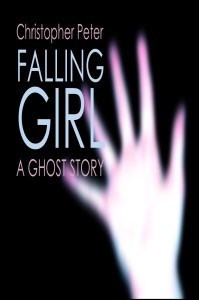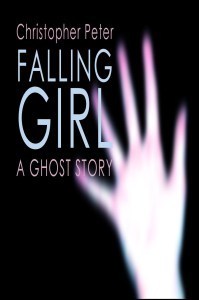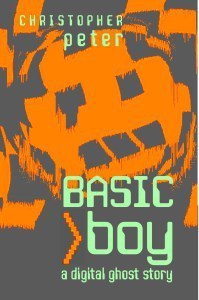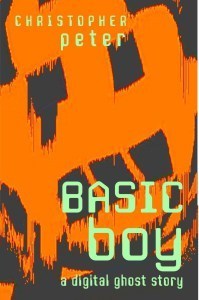Christopher Peter's Blog, page 6
December 31, 2014
My New Year Writing Resolutions for 2015
“Whatever it is you’re scared of doing, Do it. Make your mistakes, next year and forever.” – Neil Gaiman
Well that’s another Christmas wrapped up. Like many people I will now make the usual boring and/or over-ambitious New Year resolutions concerning fitness, flossing, family, finance, etc. And most of those will be broken by about 4th January. Some a bit sooner than that.
On the writing front, however, it’s a good time to focus on what I really want to achieve in the coming year. I have to be honest and say that this time last year I had little idea of what I was going to write in 2014. I had just finished BASIC Boy and published it on Amazon, but none of the various ideas I had for a follow-up ever really came to life. BASIC Boy has sold no better than its predecessor, Falling Girl, which made me question whether I should keep writing in the supernatural YA genre. It’s a very crowded market (mind you, aren’t they all?) and I haven’t been able make any kind of impact in it.
So the first half of 2014 witnessed a sorry litany of false starts and frustrated navel gazing. It wasn’t until the summer that I hit upon the idea of Danny Chaucer’s Flying Saucer and experienced the simultaneous joy and relief of seeing my writing spark into life again. At last I had a real project again, something I was truly enthusiastic about. I realised that writing for a younger age group was what I really wanted to do – for now at least.
Looking forward to 2015 … now of course what I want is for zillions of people to stumble upon Falling Girl and BASIC Boy, belatedly realising that they are in fact solid gold classics and proceeding to buy them by the truckload, thereby earning me enough money to give up the day job and pursue my writing passion full time.
However, back on Planet Earth, some more basic and achievable aims would be far more useful than daydreaming. So this is what I’ve come up with so far:
Complete Danny Chaucer’s Flying Saucer. I’ve recently finished the third draft, but I will do another spit-and-polish job on it. And then …
Finally make a bloomin’ decision on whether to try to get a publisher or agent interested, or carry on along the self-publishing route. My instinct is the latter, but I really need to come up with some kind of coherent marketing plan, because as we all know it’s vanishingly rare for zillions of people to stumble upon your books on Amazon and buy them by the truckload just by chance. And so …
Come up with a coherent marketing plan. I actually do have some ideas here, which might initially involve producing a pre-publication version of DCFS and giving it out free to lots of kids, possibly with the cooperation of my sons’ school. I hope thereby to gain some more useful feedback, and perhaps make further changes to the book as a result. (Note that my definition of ‘complete’ in #1 above is therefore somewhat elastic.)
It also means sorting out the cover and blurb. I do already have a blurb, but not yet a cover.
I also can’t quite get rid of the crazy notion of buying a load of cheap Frisbees and customising them with the DCFS logo (which doesn’t yet exist – there’s another objective) as a marketing giveaway. It’s probably just another of those bad marketing ideas I sometimes come up with, but I might just do it anyway.
More sensibly … DCFS is not meant to be a standalone, so I need to produce a series plan. Initially this will comprise two further books, so three in total, but there could be more in the future.
Outline the second and third books, and complete the first draft of book two by end February. Ideally I’d like the second book finished by the summer and the third book by the end of 2015; so that by this time next year I will have a short series.
More generally, I want to do all I can to become a better writer. It’s an ongoing process. That means – among other things – reading widely and picking up tips and advice from a variety of sources, including some of the many excellent WordPress blogs on writing. And of course it means actually writing, as much and as regularly as I can. I should write some adult fiction as well as the DCFS series, maybe some short stories.
Better networking and sharing with other writers, both online and off. I know a couple of other budding writers in my local area, and we’ve talked about setting up a writers’ group without ever quite getting around to it. Time is a scarce commodity, but maybe 2015 is the year to make it happen.
Stop coming up with long lists of action points that I probably won’t achieve. Especially silly ones about Frisbees.
I hope you have a happy, peaceful, productive and fulfilling 2015.

December 23, 2014
All I want for Christmas
Here’s a seasonal short story. Actually it’s a repeat – I first posted it last December but (1) this blog had far fewer followers then, so I figured more people might read it this time, and (2) to be honest I haven’t had a chance to write a new one, being stupidly busy in that traditional pre-Christmas way.
Anyway, I’ve just finished the third draft of Danny Chaucer’s Flying Saucer so I’m happy about that. A lot more still to do though, and my thoughts are turning to 2015 and what my priorities are going to be. But in the meantime, I wish you a very happy Christmas.
And here’s the story ….
All I want for Christmas
I knew there was something wrong about Mr Nicholas the moment I saw him. What happened next on that bitter Friday, six days before Christmas, only confirmed it.
I needed the money. Presents to buy. So when I saw the yellowing card hanging limply inside the door of Nicholas Toys – Help Needed – Apply Within – I didn’t think twice. I must have passed that mean, murky little shop a hundred times without really noticing it. Now it seemed to have sprung to some kind of life, its stringy fairy lights twinkling through the driving sleet.
Shivering as I pushed through the door, I somehow expected dust and gloom inside, but instead I was greeted by glaring neon light beating down from the ceiling. A sharp smell prickled the back of my throat – plastic, cheap cinnamon-spiced air freshener, and lurking somewhere beneath a faint acrid stench that reminded me of leaking batteries. And it was so cloyingly hot I was already peeling off my scarf and coat when he shuffled through a half-hidden doorway.
He must have been the oldest person I’d ever seen. Hunched like a question mark, his face so creased his wrinkles cast shadows. But his pale blue eyes focussed on me with keen attention.
‘Er … Mr Nicholas? I’ve come about the job …?’
He smiled thinly. ‘When can you start?’ His voice was a parched, wheezing whisper, like dead leaves in the wind.
Why he needed me I don’t know. The shop was deserted for two hours. Until, just before midday, the customer walked in. She might have been twenty-five or forty years old, it was hard to tell. Her face was blank and candle-white; mottled makeup fringed the purple ghost of a black eye. She scurried around the shop like a hunted mouse. Eventually she appeared again at the counter and spoke in my general direction.
‘Have you got the any Dizzy Dolls?’ she intoned in a defeated voice.
I thought – you’re kidding, right? Dizzy Dolls were this year’s must-have toy, a random craze that had emptied shelves and warehouses across the country. Of course, in that perverse sheep-like mentality of human nature, its very scarcity had only sharpened the population’s desire. If there had ever been any in this shop, they’d have been put right in the window, the price marked up and gone within hours. If not minutes.
But I just smiled. ‘I’m afraid not, madam. Have you tried online …?’
She snorted. OK, I thought, dumb question.
I flinched as Mr Nicholas suddenly spoke from right beside me. ‘Can I help you madam?’
‘I need a Dizzy Doll,’ she whined. ‘My eldest doesn’t want anything else. I just have to get one.’
‘Then it’s your lucky day madam!’ The proprietor grunted as he reached behind the counter and hauled up a lurid, oversized pink-and-purple monstrosity of a box. And to my amazement, poking out through the top was the perfectly-groomed peroxide head of a Dizzy Doll, regarding me balefully with its plastic stare.
The woman gasped. ‘Oh … oh awesome!’ Then she glanced warily at me. ‘Is it genuine?’
It’s not the freaking Mona Lisa, I nearly said. But Mr Nicholas got in first. ‘Of course, madam. But it’s the last one left, mind. I don’t need to tell you …’
‘Oh …’ She looked slyly away. ‘You know, I’ve seen them on special offer on ebay. Half price …’
It was a ridiculous lie. But Mr Nicholas’ smile widened. ‘I understand, madam. We’ll match that price. But there is something else …’ While I wondered if he’d lost his mind, he produced a pen and a
sheet of paper with some writing I couldn’t read. ‘The total cost is on this contract, madam. Just your signature required. And then it’s yours.’
‘Oh really?’ The woman wrinkled her nose and took the paper. She studied it; then looked up sharply. ‘Is this supposed to be funny?’
The old man actually grinned, baring yellowish but surprisingly straight teeth. ‘No joke madam. Just sign and this Dizzy Doll is yours. Imagine your little girl’s face on Christmas morning!’ But as he leant on the counter with affected nonchalance, he was betrayed by his wide, ravenous eyes. A born salesman after all, then. But what was on that contract? Maybe it was double the normal price, or even more?
The woman eyed him. Then looked back at the door and made a slight motion to leave. But when she turned back, her face was like the old man’s, shining with a bright and nauseous lust. She shrugged and signed the paper on the counter. ‘You’re crazy,’ she muttered, before grabbing the box and half-jogging from the shop.
When I turned back to Mr Nicholas, he was bowed down as if exhausted – but I saw on his shadowed face a deep, dreamy smile. As if he’d just made the sale of the year.
‘What was the price?’ I asked.
He looked up slowly. ‘High,’ he said, and gave a dry chuckle. ‘And what about you, Peter?’
‘What do you mean?’
‘What do you want? More than anything else?’
I tried to laugh. ‘I don’t have any kids. And I’m not really into toys myself …’
‘I deal in more than toys, Peter. A lot more. Sure, it’s one of my most … profitable areas. But I can get you anything. What do you want, Peter?’
‘Oh I, um …’ A volley of icy rain rattled the window pane and I glanced at the door. ‘Um … look, it’s lunch-time … do you mind if I take my break now …?’
He drew himself up; and for one insane moment I thought he might run across the shop and lock the door. I don’t know why I thought that. But he just nodded. ‘Of course. See you soon, Peter.’
Once outside, revived by the cold air, I tried to find her. I ran. But she’d gone.
I never went back to that shop.

December 8, 2014
Editing my manuscript: the wrestling phase …
Work continues on draft 3 of Danny Chaucer’s Flying Saucer. I’ve made the more significant changes recommended by the reviewers, and now I’m on to the full read-through, edit and polish. I can’t decide if this is one of my favourite or least favourite parts of the writing process. That might sound odd, so let me explain.
For the most part, I quite enjoy the process of hunting out mistakes, or finding a replacement word or phrase that works better. Or identifying a word, sentence or even paragraph that you suddenly realise isn’t really necessary and that can be cut without detracting at all from the book – in which case it probably enhances it. Or finally managing to resolve a less-than-totally-convincing plot development. Or finding a way of breathing more life into a character. Or shortening or re-ordering sentences to make the read or ‘scan’ more easily (especially since this is a children’s book).
Or realising you’ve started several consecutive sentences with the same word, like ‘or’.
So, often when I step back from an editing session, I can survey the (hopefully) observable improvement with some satisfaction, remembering the wise adage that ‘good writing is re-writing’. (Can’t remember who said that, and I’m not going to check because being too lazy to research is one of my biggest writing weaknesses, along with over-reliance on parentheses.)
On the other hand, editing sometimes seems too much like plain hard work, like wrestling with a giant slab of jelly (if you can imagine such a thing – or even want to, come to that): sticky, messy and faintly absurd. Thinking about it, I wonder if my worst moments come when one of two extremes occur. Either I come across a section of text that I’m so dissatisfied with that I virtually tear it to shreds and start again, all the time pondering gloomily on how on earth I came to write such gibberish in the first place. Or (there I go again) I arrive at the end of a page in which I’ve changed two words, fixed one typo and inserted a semi-colon; and I think, come on, was that really such an unimprovably* near-perfect piece of prose, or have I just missed loads of stuff?
(*Is that spelt correctly? Word doesn’t like it, but I do so I’m keeping it in.)
It’s most satisfying when I find enough things to fix and improve to make the whole exercise seem worthwhile, but not so many that it becomes a real slog and I wonder if I’m actually going backwards rather than forwards. But, this writing lark being what it is, both extremes will happen, along with every point in between, and we have to just do what we find needs doing.
I’m currently just over half-way through this process, and so far it’s gone pretty quickly, but I’m now entering the part of the book where I’d made the most changes following the reviewers’ commendations, so I expect to spot more mistakes, inconsistencies, repetitions and all the other things that will need hammering out. And, viewing things more positively, find those ways to make the good stuff even better.
Anyway … to give a flavour of what I’ve been up to, here is a sample of the edited first page of the book. It’s a screen capture with the ‘track changes’ in Word switched on and comments inserted. Actually these are functions I don’t routinely use, as I suspect the resulting migraine-inducing multi-coloured spaghetti of changes, deletions and insertions might drive me crazy, but I’ve used them here just for illustrative purposes.
This sample doesn’t show particularly extensive changes, but does demonstrate many of the things I tend to do during this stage of the editing. I’m probably going to review the first few pages at least twice more, the start of a book being especially important. If you have any thoughts at all, therefore, I’d be very pleased to hear them.

November 30, 2014
PD James: 10 tips for writing novels
A few days ago, upon hearing of the death of the novelist PD James, I blogged about how inspiring I found aspects of her writing career and her approach to the craft. I also found a link to this: her ten tips for writing novels.
I have mixed feelings about such lists of rules, tips or whatever you want to call them. On the one hand I’m always interested in hearing what others have to say on a subject of such importance to me – and especially when the opinions are of a writer I admire. On the other hand, you have to take such guidance as just that: read it, mull it over, and apply it (or not) according to what works for you. The rules are rarely (if ever) unbreakable.
To be fair to James, she more or less admits this in her tip #3 (Find your own routine):
‘I think all we writers are different. It’s interesting, isn’t it, how different we are?’
There are two other tips, however, that I want to pick out. The first is because I agree with it so much – #5 (Read, write and don’t daydream!) – and I quote it in full:
‘To write well, I advise people to read widely. See how people who are successful and good get their results, but don’t copy them. And then you’ve got to write! We learn to write by writing, not by just facing an empty page and dreaming of the wonderful success we are going to have. I don’t think it matters much what you use as practice, it might be a short story, it might be the beginning of a novel, or it might just be something for the local magazine, but you must write and try and improve your writing all the time. Don’t think about it or talk about it, get the words down.’
Amen to that.
The other I one I’ve picked because, although I think I broadly agree with it, I can see that some might not. It’s the very first one (which might indicate its importance to James) – ‘You must be born to write’ – and again I quote in full:
‘You can’t teach someone to know how to use words effectively and beautifully. You can help people who can write to write more effectively and you can probably teach people a lot of little tips for writing a novel, but I don’t think somebody who cannot write and does not care for words can ever be made into a writer. It just is not possible.
Nobody could make me into a musician. Somebody might be able to teach me how to play the piano reasonably well after a lot of effort, but they can’t make a musician out of me and you cannot make a writer, I do feel that very profoundly.’
I don’t know how that strikes you, but to me it makes sense. I would never want to discourage anyone from writing – far from it (see #5 above) – but it probably is the case that some have more innate talent than others. Like James, I don’t think I could ever get very far as musician – or a football player, or a dancer, or a hundred other things – because I have something between limited and zero natural gifting for those things. The best I might become, with much hard graft and good teaching, would be an enthusiastic amateur able to give enjoyment to myself and maybe some others. And that’s great. But if I ever entertained serious dreams of playing for the London Philharmonic, turning out for Manchester United or pirouetting for the Bolshoi Ballet, then I fear I’d be in for a disappointment.
(I am not claiming to possess a massive talent for writing; but I am at least pretty sure that I’m not as bad at it as I am at most other things!)
Of course this is an over-simplification. There are many factors that contribute to how successful a writer might become, and almost as many ways that ‘success’ might be defined. And also we’re probably all unreliable judges of how much ‘talent’ we might have. If we have a passion to write then that’s what we should do, and in so doing we will do justice to whatever talent we do possess.
I wonder what you think of James’s tips, and in particular on the role of natural gifting in our progress as writers?

November 27, 2014
PD James: an inspirational writer
British novelist Phyllis Dorothy James died in Oxford today – 27th November – aged 94. Many tributes have already been paid to the ‘Queen of crime fiction’; for my part, I find many aspects of her writing journey extraordinarily inspiring. Let me share why.
For one thing, her fame as a writer arrived late in her life. Very late actually.
From her school days she knew she wanted to be a writer. But her family’s financial troubles forced her to leave school at 16 and find a job as a filing clerk. Also, her mother was committed to an asylum when James was 14, leaving her to look after the house and her siblings. All in all, not the easiest of early lives, and one that forced her to put her writing dream on hold.
In fact it wasn’t until the mid-1950s, while in her mid-thirties, that she really began writing, composing parts of her first novel while on her work commute. But she didn’t make a serious start on that first novel until she was 40, while continuing to work full time and bring up a family. That novel was eventually published in 1962. There then followed a series of others (the second published just one year later) and so developed a modestly successful writing career with a small but loyal following.
And then, in 1980, with the publication of her eighth book she began to experience best-selling international success and acclaim:
‘Monday, I was ticking along as usual, and by Friday I was a millionaire.’
So, to re-cap:
She had to put her writing dream on hold for many years – about twenty in fact.
When she finally started, she was in her thirties and facing the time pressures of work and family.
Her first novel took several years to complete. (I would guess she went through all the false starts, setbacks, and the steep learning curve of all rookie writers.)
She was in her early forties before she was published.
And she was sixty before she achieved significant commercial success – so probably forty or fifty years after she’d first thought about writing, more than twenty years after she finally started, and nearly twenty years after first being published. A success for sure, but not what you’d call an overnight one.
Now if that’s not an object lesson in persistence and patience, I don’t know what is. But there’s more. Her husband, traumatised by his experiences in the Second World War, was eventually placed in an institution, leaving James to bring up their two daughters alone. Then In 1964 he died following an overdose of drugs and alcohol. So no sooner had she finally achieved her dream of being a published writer than life lobbed another grenade in her direction. But she carried on working and writing.
Of course, the publishing world has changed massively since James first ventured into it, and is changing still. No doubt some things about her career would have been different had she been born fifty, sixty or seventy years later. Perhaps also she was fortunate in at least two ways. First, and most obviously, she did achieve success in the end. Yet I feel sure that would have happened anyway, even if she started out today, even if by a different route – her talent and dedication would have all but assured it. Maybe it would have happened more quickly, maybe not.
Her second stroke of luck was her long life. Hitting the big time in your sixties isn’t so bad if your still have three more decades to enjoy it, and enough time to pen more than twenty books. She acknowledged as much herself, once saying:
‘I am lucky to have written as many books as I have. It has been a joy.’
Yet some might say that, by modern standards, twenty-ish books in a thirty-year-plus writing career is an unexceptional output. These days there is pressure to write almost with a production-line mentality: keep publishing, get your work out there, get noticed. The trade-off is that quality can easily suffer.
But James saw her writing as a craft. She wanted to get it right. Her books were known for being well-researched and well-written. She rejected the notion that crime novels were not ‘proper literature’. Perhaps if more writers were so fixated on quality, they would make more progress in the long run. In our fast-moving digital age, where we can all too easily be panicked into believing that tomorrow is too late (and even today might be), too much is thrown out into the world too quickly. The world needs better books, not just more of them. (Arguably it doesn’t need more of them at all …)
Speaking of research, here again is another way that James turned what might have been a negative into a positive. For many years her writing and her day job had to co-exist, as it still does for most writers. But she used her experience in hospitals, in psychiatric clinics, and in the criminal policy section of the Home Office in her books. In one memorable quote, she described seeing someone being fed through a tube during her time as a nurse:
‘I remember thinking, ‘that would be an easy way to kill someone.’’
That duly became the method she used to dispatch a character in a later book.
I admit I’m not into crime fiction especially, but James did range beyond that at times, for example in the dystopian novel The Children of Men, and the recent Austen tribute / Pride and Prejudice sequel / murder mystery Death Comes To Pemberley.
Finally, a few more pearls of wisdom and inspiration from the great lady …
Talking of her regret about waiting until she was 40 before writing her first novel:
‘I realized that there was never going to be a convenient time to start that first novel … If I didn’t make time, find the motivation, I would be a failed writer and that would be absolutely appalling for me.’
Her characters often died brutal deaths. But she admitted it could be hard to get under the skin of a killer:
‘When I am writing about a killer, I am that killer. I am in his mind, which is probably why I don’t have sadistic mass murderers as characters.’
She wrote all her novels by hand and then dictated the words onto tape for a secretary to produce the first draft – but she found that approach had certain advantages:
‘Dictating is quite useful … because you can hear the dialogue, hear the structure of the sentences, the very subtle and peculiar usage that is English prose.’
While she loved writing, she admitted it didn’t always come easily to her:
‘There are moments when I’m rather reluctant to get started; the sort of day when even cleaning the stove seems an agreeable thing to be doing rather than start writing. But on the whole it is a labour of love.’
… and just to prove it, she said last year she was working on another book. Which just goes to show you’re never too old to start writing – or to stop!

November 24, 2014
Help! My book’s getting bigger …
The third daft of Danny Chaucer’s Flying Saucer is proceeding – well, I want to say at light speed but that would be exaggerating somewhat. Let’s just say it’s proceeding. As a result I’ve been posting here less frequently – the old story of more writing equals less blogging.
Anyway I’ve fixed the main issues that were highlighted in the recent critiques / beta-reads. I say fixed. I’ve done something about them, but further time and review will hopefully establish how successful I’ve been. In particular I’ve cut down on the over-expository dialogue and ensured that the principal villain doesn’t just mysteriously disappear from the action two-thirds of the way through the action. And, speaking of action, there was the small matter of making sure there actually is some in the last third.
Having done the above, I’m now going to read through the whole thing again, start to finish, and probably make more (hopefully more minor) changes as a result. Less radical surgery and more of a spit-and-polish. (That’s the idea anyway.) (Probably including the removal of excessive parentheses, which as you can see I’m rather prone to.)
However, one slightly surprising thing has already become apparent: the book’s got longer. You know the general rule that, as you redraft and edit a manuscript, it inevitably gets shorter as the flab is removed? The unnecessary scene, the superfluous character, those pesky adjectives and adverbs clogging up your silken prose? You might even say that ever-reducing word count is proof positive that your manuscript is heading in the right direction, i.e. soaring up to fiction heaven rather than being dragged down to the other place by its own ponderous weight.
Well in that case Danny’s flying saucer is dropping like a stone towards the underworld. Because whereas draft 2 weighed in at just under 27,000 words, draft 3 has so far rocketed to near 30,000. In other words, about a 10% increase. So what the flipping heck is going on? Have I gone start raving bonkers and forgotten how to edit? Do I entertain the delusion that my prose is so completely dazzling it cannot be touched?
I think the reason lies in the nature of the problems that draft 2 had. As I’ve mentioned, one of its major faults – probably it’s most fundamental one – was the premature exit of the villainous Captain Frost. The result of which was a distinct shortage of plot in the supposed-to-be-climatic section of the book.
So Danny and his friend Natalie voyaged into space and saw lots of amazing things. Lots of numbers and stats were thrown around to illustrate the vastness of the cosmos. But beyond that not much, like, happened. I mean, flying into outer space is quite an exciting event in itself (have you ever done it? Me neither), but in my book it became too much of a science lesson and less of a story. I needed to keep the wonder but add at least a dash of action to the mix as well.
Therefore, the obvious solution: Captain Frost joins the voyage. Which means more dialogue, extra happenings, a bit more back story. I also have to explain how, having seen and experienced the flying saucer, the bad Captain is not ultimately able to carry forward her dastardly plans for it. Hence I have to solve a problem that I’d previously sought to avoid entirely by cutting her out before she’d ever even seen the saucer – which was a cop-out, I now confess, on a galactic scale.
Of course, as I go through the next read-through, I probably will find the odd thing that needs re-writing, simplifying or cutting out. As a result, I believe draft 3 will end up a little bit shorter than it is now. But it will almost certainly still be longer than draft 2.
I also like to think that, DCFS being my third book, I’ve learnt to write more economically than I used to. The first draft of my first book, Falling Girl, was a lot flabbier, cursed with unnecessary exposition and surplus characters. These are things I was looking to avoid in DCFS right from the start of the first draft. I made a conscious effort not to write too much. So, compared to my earlier books, there was less to cut out. Of course I made other mistakes to make up for it …
Which all goes to show that, as with all writing ‘rules’, the ‘edit makes shorter’ dictum does not always apply. It depends what kind of changes are being made, and it all comes down to doing – after careful consideration and listening to good advice – what needs to be done for that particular book, even if looks like a particular ‘rule’ needs to be broken (or at least slightly bent). (And there I go with the parentheses again …)

November 8, 2014
Your Voice is Your Voice: Keeping It Real
This is a great post about ‘voice’, which is one of the aspects of writing that I’ve struggled with the most – but I know it’s important and I’m always on the look-out for wisdom on the topic.
 Originally posted on Ingrid's Notes:
Originally posted on Ingrid's Notes:
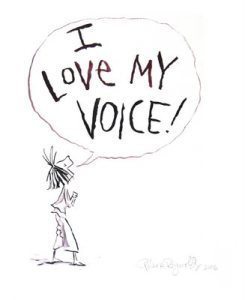 An amazing voice is the number one “must-have” on every agent and editors list. So what is this odd and illusive thing known as voice? How do you find it? What does it sound like? Why is it so gosh darn important? Scholastic editor Jennifer Rees (The Hunger Games, Purge) spoke on this exact subject at the 2010 SCBWI LA Conference. The following is her two cents on why you’ve got to have a knock-out voice and how to develop it.
An amazing voice is the number one “must-have” on every agent and editors list. So what is this odd and illusive thing known as voice? How do you find it? What does it sound like? Why is it so gosh darn important? Scholastic editor Jennifer Rees (The Hunger Games, Purge) spoke on this exact subject at the 2010 SCBWI LA Conference. The following is her two cents on why you’ve got to have a knock-out voice and how to develop it.
The Importance of Voice…
Voice is the most powerful and prized possession in a writer’s tool box.
Voice is that amazing thing that taps you on the shoulder (the character) and asks you to come with them on a journey.
Great voice is not reserved for fiction alone. It can also be in non-fiction.
When writing you are concerned about: What is the story? How…
View original 1,224 more words


November 6, 2014
It’s Judgement Day (gulp) …
And the verdicts are in. As I wrote recently, I submitted the second draft of Danny Chaucer’s Flying Saucer for a Writer’s Workshop critique. In addition, my esteemed fellow blogger Bookgirl very kindly volunteered to do a beta read. And thirdly, the most demanding examination of all: my two sons (aged ten and six) have been the semi-willing recipients of bedtime excerpts, at least when I’ve been able to get them both together at the same time and stop them punching each other.
So what did they all say, I hear you shout?
Well, to take the third review first … George and William seem to quite like it. They laugh at most of the bits that are supposed to be funny. They ask questions – sometimes a lot. (‘How big is a light year, Daddy?’ ‘That was two pages ago … OK, let’s go back …’ [three minutes later] ‘how big is a light year, Daddy? [sigh].)
They also haven’t had to ask what too many words mean, which is probably good – but I like it that there’s a few they haven’t immediately understood. It’s good to expand their vocabulary a bit, right?
And even when they start fidgeting and kicking each other ‘playfully’, they immediately snap back to attention when I threaten to stop reading. (‘One more page please!’) They do seem to take it all in, even when they appear not to be – a curious gift all my kids share. Now it’s perfectly true that, when it comes to postponing lights-off time, the boys will employ all sorts of subterfuge. However, whenever they glimpse the flash of cold light on nail scissors, for example, they will usually – vey suddenly – be overcome by complete and total exhaustion and beg for bedtime. So at the very least I can claim that my boys prefer Danny Chaucer’s Flying Saucer to having their nails cut.
The boys’ interest and enthusiasm is their best feedback. But in the course of reading the book out loud, I’ve also given myself another perspective on the quality of prose in the book, including its suitability for the target age range. As a result, come the third draft, some sentences will be re-written – typically to become shorter and simpler – to improve clarity and flow, and some extraneous or ill-fitting words will be canned.
Turning now to the feedback from the adult experts – well, it’s always fascinating to get someone else’s take on your work, particularly when you can be confident they know what they’re talking about. There was much encouragement from both the Writer’s Workshop reviewer and from Bookgirl, and nice things were said about many aspects of DCFS, for which I’m grateful. But, more importantly, they hit on a number of areas requiring attention, and that’s always the most valuable feedback.
I’ve briefly summarised the main points of feedback in the table below, along with my own observations (you might need to click on it to view properly):
Now obviously the details of this won’t mean much to you unless you’re one of the small band of people (the WW reviewer, Bookgirl, George and William) who’ve actually read the manuscript, or had it read to them. But bear with me …
Although all of the above points are valid and require attention, there were three in particular that jumped out as being the most fundamental issues with the book:
# 3: Credibility of dialogue. This related to my tendency to use a number of passages of dialogue, mostly between Danny’s parents, to furnish plot exposition. Nothing wrong with doing that, except that in places it seemed forced and therefore less than totally credible.
# 5: Not enough action in the climatic chapters set in outer space. Instead, a lot of numbers were thrown around here, to emphasise the vastness of space – e.g. how big is a light year, the distance of the nearest star to Earth, etc. I wanted DCFS to have some educational content, but it also needs to be an exciting and entertaining story. The way I’ve written these two chapters, they’ve become too much of a science lesson and not enough of a story.
# 6: The villain, Captain Frost, basically disappears well before the end, and her eventual fate is referred to only in passing in the final chapter. She therefore plays no part in the book’s climax. This is closely linked to # 5 – because if Captain Frost was with Danny and his friend Nat inside the saucer in outer space in the climatic two chapters, there would be a whole lot more action and interest. (So can you see what the solution might be …?)
In my next posts I’m going to look at the above issues in more detail, as I believe they’re representative of some fairly common problems in manuscripts, particularly early drafts. And also I’ll discuss how I’m proposing to put them right. For now, though, I’d make two interesting observations.
First, both WW and Bookgirl picked up on #5 and #6. If you get two beta readers both say the same thing about your manuscript, you’d better take notice.
Second, if I’m being honest … none of the above – #3, 5 or 6 – really surprised me very much when they were pointed out. Sometimes you have a hunch about things that don’t quite work. It nags at you. Really, I knew that some of the exchanges between Danny’s parents were probably a bit contrived. I did worry there were too many numbers being sprayed around in space, in lieu of real action. And Captain Frost’s early departure did not strike me as ideal – it was, in hindsight, a major plot weakness. Why work hard to build a credible villain, only to let them bow out with a whimper two-thirds of the way through the book?
So if, deep down, I knew these were problems, why hadn’t I fixed them in the second draft? It’s not because I’m an idiot. Well, not only because of that. It’s also because sometimes these things only really dawn on you as you’re working through the manuscript, often while you’re thinking about something else. And sometimes they hang around, tapping you insistently on the shoulder until you finally take notice. Or you do something about them, but maybe not enough, or not the right thing to really fix them.
There are other things, too, you might worry about that turn out to be OK. For example, I wondered if I’d pitched the book’s readability at the right kind of level. It is, after all, aimed at a younger age group than I’ve written for before. But I’m pleased to say that the reviewers seemed to think that, generally, it was about right. That’s not to say that more fine-tuning isn’t required, that there aren’t some words or sentences that need tweaking, as I’ve mentioned above. But I’m pretty happy now that this isn’t a major area of concern.
I should add that, of course, the reviews also picked up things I hadn’t spotted or considered at all. That, again, is the beauty of the fresh pair of eyes.
Now all I have to do is act on all this excellent advice, roll up my sleeves and get stuck in to draft number three …
Do you come across similar issues to these in your writing? What has been your experience of critiques and reviews?

October 31, 2014
Spooky houses …
Just had to share this, especially given the date today … I mean, could these buildings possibly look any more sinister? If they’re not haunted, they should be …


October 27, 2014
Why I designed my own book covers – and still wonder if I’ve done the right thing …
Do you design your covers, or pay for someone else to do it? The advice available on this (as with most things) varies a lot. Some will say you should always use a professional designer; you won’t do a good enough job yourself, and you’ll just end up with the dreaded ‘self-published look’.
I have some sympathy with that view. You could say it’s slightly delusional and even kind of demeaning to designers, to believe that I can knock out a cover as good as an actual, real designer could produce. After all, graphic design and typography are real skills, just like writing – and, like writing, experience and practice makes you better. Someone who’s designed dozens of covers is bound to be better at it than me, aren’t they?
And I think most of us can agree on one thing: the cover is important. Along with the blurb, it’s one of the few things that potential buyers see before they buy (or not). So why compromise?
Well, the main reason is obvious: cost. It’s tempting to save the money by doing it yourself. It’s possible to spend hundreds of dollars or pounds on a cover; some top designers may charge even more. However, you can also spend a lot less, for example by using Fiverr to source a low-cost design. I’ve yet to try this myself, but I’ve heard good things. Then again, I wonder if there’s an element of ‘you get what you pay for’.
My own feeling is that producing your own cover is a bit like doing home improvement or DIY. I’m not a professional architect, builder, electrician or plumber, and there’s a lot of what they can do that I wouldn’t even attempt. But there are things I can do with minimal risk of disaster or death. I can wire a plug, fill small cracks, sand and paint, all in relative safety and producing acceptably good results. I learnt to do those things, followed some simple rules, and have done them enough to attain a reasonable level of competence. I know my limitations, and provided I stay within them then I’m probably OK.
With both Falling Girl and BASIC Boy, I had good ideas of what I wanted the covers to look like. Furthermore my ideas were quite simple, not requiring expensive professional graphics software or a high level of design expertise. They were concepts that I was reasonably sure I could execute to an acceptable standard, and so was comfortable having a go. Now, I’m fairly happy with the results. I don’t think they scream ‘look at me, I’m so self-published!’ (or maybe they do? If I’m deluding myself, I hope someone will put me right. The covers are below.)
Anyway … from the research I’ve done, I would say it might be worth having a stab at your own cover if one or more of the following apply to you:
You really can’t afford to pay even a low-end design price.
You have a very good idea what you want to do – and it’s not too ambitious.
You are aware of, and stick to, basic layout and typography good practice. If you don’t know what they are, there are a lot of resources and advice (much of it for free) available online. See for example my references below.
I won’t go too much into ‘good design practice guidelines here’ – but, I will share just a few that I’ve used as guidance for my designs of my two covers:
Try to use a simple, striking image, rather than over-complex, over-busy design.
If you use your own image, ensure it’s good quality; if you use a downloaded stock image or photo, make sure it’s not an over-used one.
Use contrasting covers.
Use an asymmetrical design.
Don’t use a common text font like Times or Arial – rather, use a less common, display font (many of which can be downloaded for free) (Comic Sans? Don’t even think about it … unless your book’s an ironic meditation on the evils of Comic Sans – and even then I’d think twice.)
Space the text out, rather than squash it up, for an easier-to-read and more professional look. (Sorry about the technical typographic jargon … you can just tell I’m an expert!)
Your overall design must reflect the book’s genre / subject well – and as the market is today, not twenty or thirty years ago.
No doubt there are many other ‘rules’ too – and some are in the books listed at the bottom of this post – but the above seemed the most important to me.
Points 1 to 4 are about making your cover stand out – bearing in mind it must catch the eye even at thumbnail size (as it will appear on an Amazon search results screen for example).
Points 5 and 6 are about the typography looking professional and easy-to-read.
Point 7 involves having a good working knowledge of the genre and market. What do the covers of other, similar books look like? You want yours to stand out – but not look so different that the casual browser won’t recognise the kind of book it is.
With my two covers, I tried to follow the above guidelines – but a couple of weeks ago I decided to refresh the designs. In particular I noticed that they weren’t very good on point 6, i.e. the text was a little ‘squashed’. So I opened it up a little for Falling Girl:
Before:
After:
It’s subtle I grant you, but a little better I hope.
I did the same for BASIC Boy – but, more noticeably, also blew up the ‘demented ghostly space invader’, making it more ‘in yer face’:
Before:
After:
But, for goodness sake, if you think that (1) either cover sucks or (2) the ‘before’ is better than the ‘after’ in either case, please tell me. I’m a self-published author: I can take criticism, in fact I expect it. (On the other hand, if you like the covers, that would be nice to know too.)
For my current project, Danny Chaucer’s Flying Saucer, however, I’ve yet to find much inspiration re the cover – and the one vague idea I have had so far I’m not sure I’d be able to execute very well. So that may well lead to my first foray into Fiverr. Mind you, I’m not even yet sure whether I’m going to self-publish or to propel myself into the gruelling agent/publisher-query marathon. If the latter, it’s probably not worth spending time or money on a cover at this stage.
Do you design your own covers? How do you think you did? Any experience of using designers, on Fiverr or elsewhere? Comments welcome as ever.
Footnotes
In Make A Killing On Kindle. Michael Alvear is very much of the ‘you must get a professional cover design’ school of thought. He has no time for do-it-yourself – he thinks your efforts will inevitably suck. I don’t necessarily agree, but looking at some of the covers of self-published titles on Amazon, I can see where he’s coming from.
On the other hand, both Derek Murphy in Book Marketing is Dead and Rayne Hall in Why Does My Book Not Sell? allow for the possibility of decent self-produced covers and give some useful design tips.






